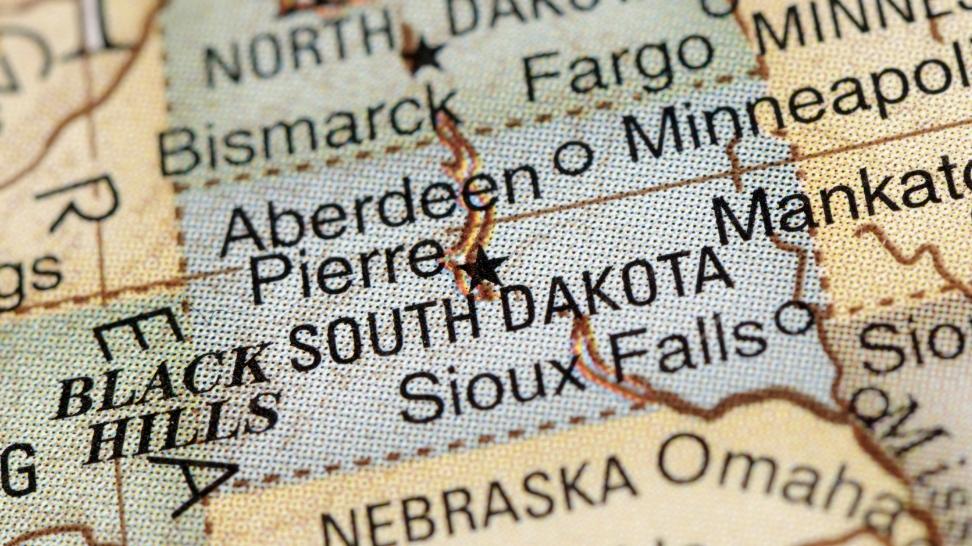
International asset protection gives you the power to safeguard your wealth from lawsuits, liabilities, and political or economic unrest in your home country. For citizens and families of South America, including Brazil, Columbia, Ecuador, and Mexico, an offshore trust somewhere outside your home country can help you protect your wealth for generations to come.
The United States has some of the strongest financial institutions and most robust financial protections in the world. The dollar is a stable alternative to other volatile currencies. So, it’s no wonder that the U.S. is one of the most popular asset protection destinations for individuals, families, entrepreneurs, and businesses around the world.
A licensed U.S. attorney can help you set up an asset protection plan to carry out your unique vision – whether that’s stateside or in another country altogether.
Latin American citizens, business owners, and investors who want to protect their wealth have a number of options to choose from – with Nevada trusts, South Dakota trusts, Cook Island trusts, and Nevis trusts offering some of the best advantages. Talk to an attorney to determine which is the best option for you and how to properly set up and safeguard your assets.
The Benefits of Offshore Asset Protection
With technology, it’s easier than ever for governments and bureaucratic agencies to control the wealth of their citizens, including the ability to identify and freeze your local assets. That could affect your personal or business bank accounts, any securities or bonds you hold, and any local real estate you own. If you get sued in your country, courts could take over your local assets to fulfill the judgment – or even before you get to trial.
An offshore wealth plan not only protects your privacy, but also helps protect your wealth from non-U.S. government entities.
International asset protection ultimately helps separate your wealth from your risk.
In addition to removing your wealth from personal risk, an international offshore trust can also protect your assets from political and economic risk or unrest. You can avoid having your wealth wiped out in case a political party with a more radical agenda takes control – or if political developments in your country cause your local currency to tank.
Certain jurisdictions like Nevada, South Dakota, the Cook Islands, and Nevis have strong asset protection laws in place to make them a more attractive location for international wealth planning. You can rest assured your assets will be safe within their borders.
Each of these jurisdictions come with pros and cons. An asset protection plan that works for one person might not work for another because your goals and circumstances are different.
From the beginning, you must choose carefully how to structure your asset protection – in many cases involving asset protection trusts, you must hand over control to a third party trustee and the wrong choice of trustee could end up costing you.
Asset protection also works best when it’s planned ahead, before you have a legal issue that affects your wealth. Most asset protection strategies won’t work successfully if your local assets have already been identified, frozen, or seized in a legal action.
With stakes this high, you want to make sure you work with an experienced asset protection attorney. You also want to make sure you proceed with a personalized strategy tailored to you.
What to Consider When Creating an Offshore Trust
When deciding where to protect your assets, your lawyer can help you review the most important considerations to take into account, including:
- What are your personal or company goals for your assets?
- How do local laws in the country treat trusts and asset succession?
- What estate and property taxes apply in the state or country?
- Do you have any personal or business connections in that jurisdiction?
- What are the current and projected currency exchange rates?
- Are there any other local or international political or economic risks?
Whether you choose to protect your assets on U.S. soil or in another country entirely, every jurisdiction comes with pros and cons. That’s why it’s critical to talk to an experienced asset protection attorney about the best choice for you. An international asset protection attorney will have the knowledge and market experience to help you understand how each arrangement might work out for you.
Nevada Trusts for Latin American Residents
The State of Nevada has some of the most protective laws in the U.S. when it comes to asset and wealth management. Nevada asset protection trusts, or Nevada spendtrift trusts as they’re commonly called, allows for self-settled trusts.
A Nevada trust can hold cash, real estate, stocks, bonds, cryptocurrency, jewelry, or almost any other type of asset located anywhere in the world. Nevada is also a no-income-tax state. However, federal income taxes would still apply.
When a trust is self-settled, a single person can act as all of the following:
- The trust settlor – the person who creates the trust and transfers the assets,
- The beneficiary – the person who inherits the assets from the trust, and
- The trustee – the person who manages the trust and its distributions. However, it is advisable not to serve as trustee for a self-settled asset protection trust.
That’s a lot of power and advantage to have over your wealth. That means you don’t have to trust anyone else to manage your wealth for you – you can both protect your assets and continue to control your assets. However, in order to shield your assets from legal claims, at minimum, you must appoint a co-trustee to oversee the distribution of trust assets.
Nevada state law doesn’t require you to be a resident of Nevada or even the U.S. to create a trust within the state. However, one of the trustees must be a Nevada resident.
Even though Nevada trusts come with many advantages, you want to make sure you’ve set up your trust properly in order to avoid legal issues or fraudulent conveyance claims.
South Dakota Trusts for Latin American Citizens
South Dakota is another state with advantageous laws for asset protection. Similar to Nevada, South Dakota has no state income tax or capital gains tax. That means the funds in your private trust cannot be taxed by the state, even if the trust assets produce income or capital gains. South Dakota also does not have estate or inheritance tax, which helps avoid costly tax deductions when your family or successors inherit your assets. However, federal income taxes would still apply.
When it comes to asset protection, South Dakota shields your assets in trust from creditors, business partners, ex-spouses, or anyone else who could make a legal claim against you. South Dakota’s 2-year look-back provision for creditors is also among the shortest in the country.
South Dakota is also unique in how it allows trusts to exist in perpetuity so long as there are enough funds to maintain the trust, while most states limit how long trusts can operate to less than 100 years. Unlike some other states, you can also decant or change the terms of an irrevocable trust, giving you greater control of the assets therein.
While neither Nevada nor South Dakota have state tax, you will still have to pay federal taxes for trusts in the United States. In addition all U.S. based trusts are subject to U.S. court orders which is why you may consider one of the alternative options below instead.
Cook Island Trusts and Nevis Trusts
The Cook Islands and the island of Nevis are two of the most secure international offshore asset protection jurisdictions in the world, with major advantages for trustmakers.
Both Cook Island trusts and Nevis trusts come with numerous benefits. Most importantly, they provide protection from lawsuits or asset freeze orders. Both country courts are known to be “defendant-friendly,” putting an extremely high burden on plaintiffs who may attempt to sue you.
Neither the Cook Islands nor Nevis accepts foreign court judgments and both countries are independent of U.S. courts. So, a creditor, ex-spouse, or business partner who has a judgment against you from your home country or the U.S. won’t be able to access your assets without entirely retrying their case in a defendant friendly foreign jurisdiction.
Both countries also have very short statutes of limitations for creditors, giving them no more than a couple of years to bring up legal claims such as fraudulent transfer of trust assets.
An asset protection attorney who specializes in international wealth protection can help you decide which jurisdictions would best meet your goals.
How to Properly Plan for Offshore Asset Protection
Offshore trusts are used by individuals across South America to protect their assets and safeguard their wealth for themselves and their families, for generations to come. A bit of planning ahead can make a world of difference for your financial future.
Whether you choose a trust in the U.S., the Cook Islands, or Nevis, make sure you speak with an experienced asset protection attorney, weigh all your options, consider your goals, and get started early. If you wait too long to transfer your assets to a trust, you may lose the chance to protect them.
At Blake Harris Law, we help clients across Latin America in countries like Brazil, Columbia, Ecuador, and Mexico protect their assets with personalized asset protection strategies catered to their goals. Click here to talk to our experienced team now.




